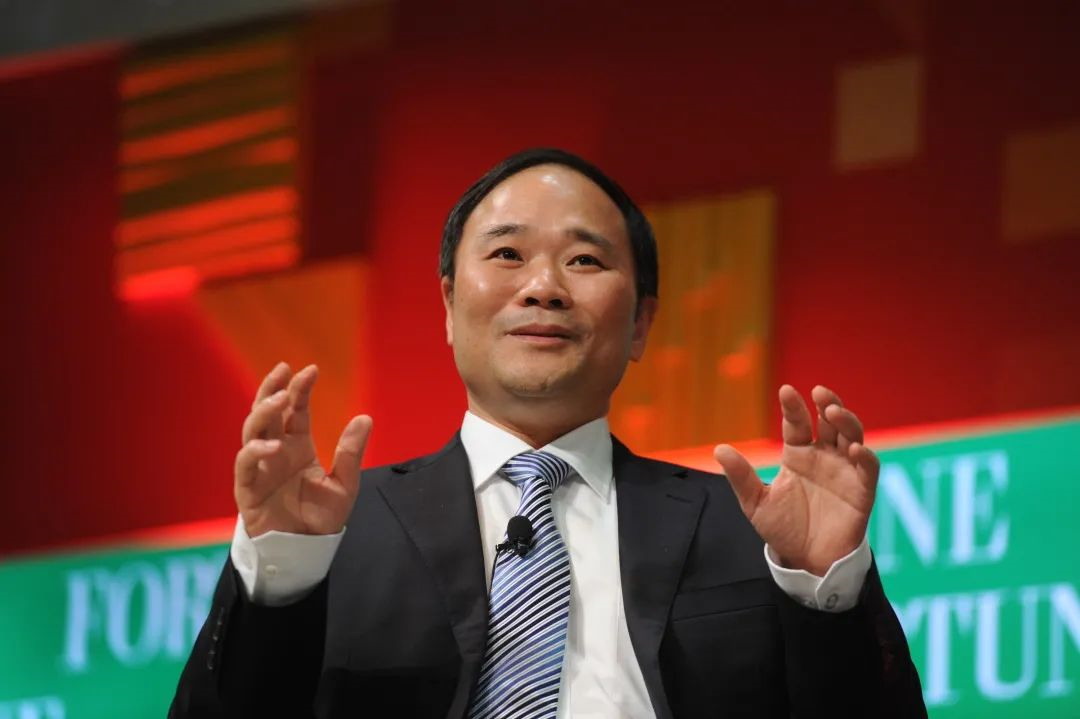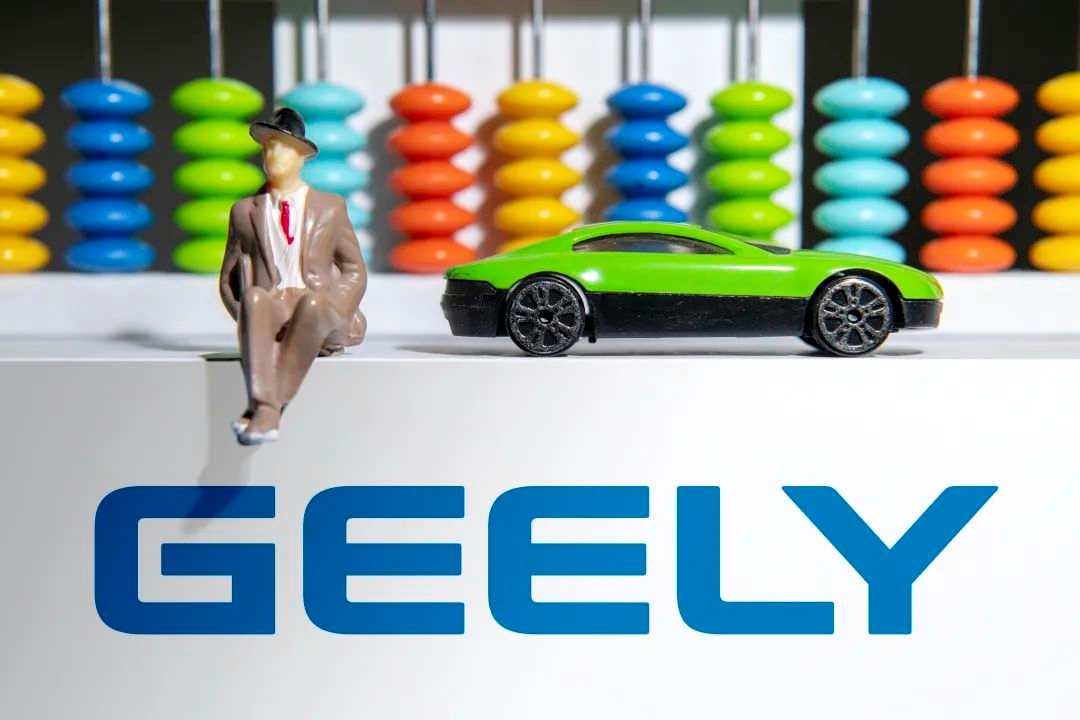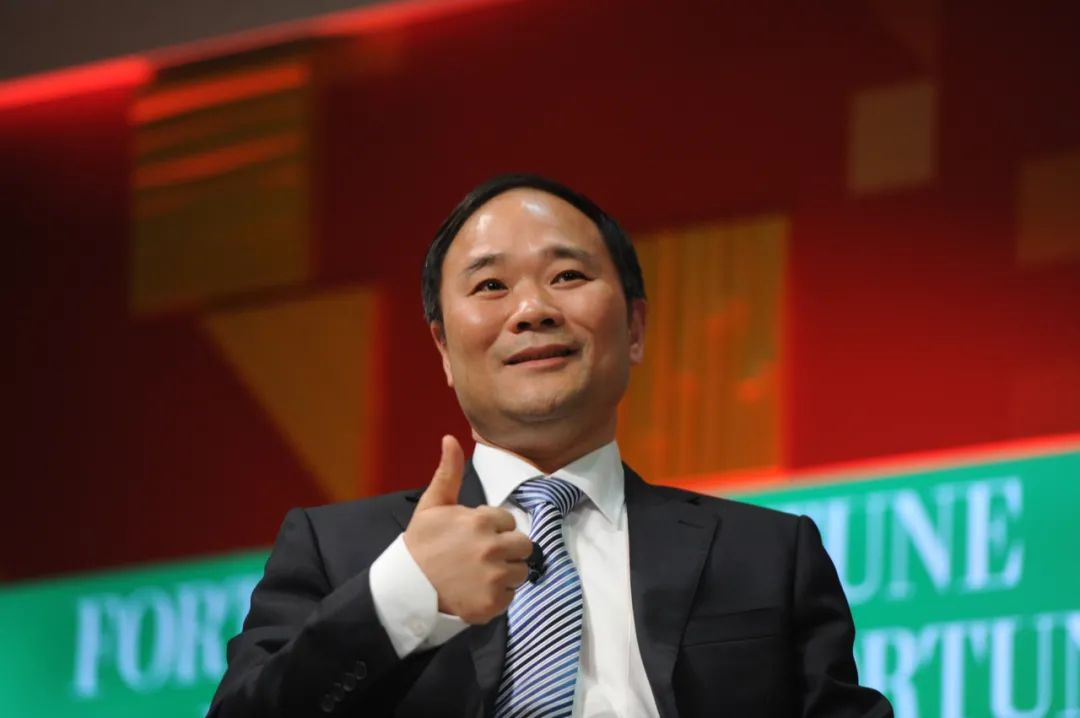The following is the translation of the Chinese Markdown text into English Markdown text. The HTML tags inside the Markdown are preserved, and the output is the only thing that should be provided.
This article is authorized by 【Car Caijing】 (WeChat ID: carcaijing), created by the transportation industry group of “Finance” magazine, written by Li Xiyin, edited by Shi Zhiliang.
When Xiaomi entered the car production industry with small and fast steps, Li Shufu, who builds mobile phones, is by no means defensive but proactive. Behind this, the two parties are creating a “new species” in parallel.
“Are you sure?” Until the official announcement came, many people still had doubts.
On September 28th, Li Shufu founded Hubei Xingji Era Technology Co., Ltd. (hereinafter referred to as “Xingji Era”) signed a strategic cooperation agreement with Wuhan Economic Technology Development Zone, announcing its entry into the mobile phone field.
Earlier, Car Caijing (ID: carcaijing) reported this news exclusively, but various circles were skeptical: When the new forces represented by Lei Jun rushed into the field of car production, Li Shufu, the leader in the independent car sector, made mobile phones, like a rebel.
“This is based on practical considerations. Leveraging mobile phones to directly face users can improve the human-vehicle interaction experience. At the same time, it can promote the digital transformation of the company and turn it from a car manufacturer to a technology company.” Xu Haidong, Deputy Chief Engineer of the China Association of Automobile Manufacturers, told Car Caijing (ID: carcaijing).
Some believe that Li Shufu’s production of mobile phones is a defense against the attack of “Lei Juns.” However, according to exclusive inquiries from Car Caijing (ID: carcaijing), the car company executives who had the idea of making mobile phones were far more than Li Shufu, and their ambitions were even greater: not to compete with Internet car manufacturing companies for territory, nor to focus on software and hardware profits from mobile phone manufacturing.
“It’s not as difficult as you might think.” Tao Xujun, General Manager of Communication and ICT Consulting Department of Nomura Research Institute (Shanghai), told Car Caijing (ID: carcaijing). Mobile phone design and subcontracting are very mature. There is a lot of overlap between the automotive electronics and mobile phone industry contacts, and it is not difficult for Li Shufu to enter the market. The difficulty lies in establishing a good supply chain and making a unique product in a market with severe homogenization competition.
In the short term, mobile phones and smart cabins can empower each other; in the long term, whether it is a mobile phone or a smart car, they are essentially the same—becoming a kind of intelligent hardware that consumers carry with them, not only keeping people’s awareness constantly online, but also keeping their bodies constantly on the road.
Whether Li Shufu makes mobile phones or Lei Jun makes cars, they eventually want to build the same thing: a moving robot in a sense, or a truly intelligent car, which is more likely to iterate continuously and eventually become a new thing.
Difficulties and Opportunities
Who will produce Li Shufu’s mobile phones? This is not an easy question to answer.The statement “Geely makes smartphones” is inaccurate. According to data from Qichacha, Xingji Era was registered on September 26th, 2021, with shareholders including Li Shufu who holds 55% of the shares, and Shen Ziyu who holds 30%. Therefore, there is no direct equity relationship between Xingji Era and Geely’s assets, making the statement “Li Shufu makes smartphones” more accurate.
However, as the founder and leader of Geely, Li Shufu will definitely leverage Geely’s industrial strengths. For example, by leveraging the design, R&D, high-end manufacturing, and supply chain management experience of both Geely and Volvo’s surrounding ecosystem, the high-end feel of mobile phones will be enhanced. At the same time, the phone will certainly be deeply integrated with the Geely industry, such as intelligent cockpits, low-orbit satellites, and other businesses.

Li Shufu and Shen Ziyu have been cooperating for a long time. They are shareholders of Hubei Yikatong Technology Co., Ltd. (hereinafter referred to as “Hubei Yikatong”), which was established in March 2017. The company’s intelligent cockpit has undergone route upgrades. In 2018, Hubei Yikatong attempted to use mobile phones as computing support and to screen cars to reduce the threshold for consumers to own smart cars. Until August 2021, Hubei Yikatong upgraded to a new product, and the car operating system, Galaxy OS, was installed in the Geely Star Electric L model and gradually promoted in the Geely automobile series.
It is worth noting that Zhejiang Yikatong Technology Co., Ltd., which is controlled by both parties, was renamed Zhejiang Huanfu Technology Co., Ltd. in August 2021. An insider close to the company told Carcaijing that it will play a corresponding role in Li Shufu’s mobile phone business.
According to Caixinwang, the first mobile phone will be launched in the next two years, and cooperation with Foxconn is not ruled out. “Foxconn has always wanted to cooperate directly with Android system mobile phone manufacturers.” Lin Zhi, chief analyst of the international market research firm WitDisplay, told Carcaijing that with cooperation with Li Shufu, Foxconn can relieve the pressure of heavy investment in Apple for a long time, and the cooperation between the two sides can be a win-win.
The cooperation between the two parties has already begun. In January 2021, Zhejiang Geely Holding Group Co., Ltd. and Foxconn Technology Group announced the establishment of a joint venture to provide production and customized consulting services for automakers, with products involving the entire automotive ecosystem.
For Li Shufu, the challenge in creating highly competitive high-end smartphones lies in the management of the supply chain. Pay Liang, an independent TMT analyst, pointed out that Samsung and Apple have already occupied the major share of the high-end market, while Vivo, OPPO, Xiaomi, and Honor are all targeting this market, and Huawei has not given up on the high-end market either. Each is intensively controlling the supply chain to obtain sufficient key components.It is not easy for a new brand to break the existing smartphone market pattern. Fu Liang states that Geely needs to continuously upscale its smartphones, differentiate them from mass products, and reasonably control sales expectations. Geely’s intelligent ecosystem and a large number of intelligent cars are the ace in the hole for Li Shufu’s foray into smartphone production.
In fact, smartphones and intelligent cars can be described as a pair of happy enemies. “To get on the car, you still need to use your smartphone. This is the shame of the auto industry,” said Wang Jian, Chairman of Alibaba Technology Committee, at the 10th TC Auto Internet Conference in 2017, which shocked countless people both on-site and off-site, including CarCaijing (ID: carcaijing).
Xu Haidong believes that through smartphones, car companies can face consumers directly and improve the human-car interaction experience. In the route selection of the intelligent cockpit, some enterprises have long bet to use smartphones as computing power for screen casting. Even today, no matter how smart the operating system is, there are still car owners who want to buy a 9.9 yuan e-commerce free shipping smartphone holder. The intelligent cockpit is not only an important node in human-car interaction but also reflects the level of vehicle intelligence.
Smartphones and intelligent cockpits will improve the intelligence level of cars, but it is still far from a real “intelligent car,” which requires a systematic layout and strength.
From Different Paths to the Same Goal
Li Shufu is not the only heavyweight in the auto industry who wants to create a smartphone. According to CarCaijing (ID: carcaijing), some people believe that integrating the supply chain and producing smartphones can yield higher profit margins, while others believe that producing smartphones can create their own ecological chain.
Previously, the media speculated that Musk was interested in producing smartphones, which would have many black technologies, could connect to Space X’s Starlink high-speed satellite internet, and support a download and upload speed of up to 210 Mbps. The smartphone would also have brain-machine interface function to replace the function lost due to brain injury.
Li Shufu also hopes to link his own business through smartphones. At the signing ceremony held in Wuhan City, he stated that smartphones can link car networking and satellite internet, create rich consumer scenarios, strengthen the ecosystem, and provide users with a more convenient, smarter, and interconnected multi-screen interactive life experience.
It’s worth noting that in the past “going out with four items,” i.e., ID cards, keys, wallets, have all been integrated into smartphones.The ever-present smartphone keeps users constantly online and directly connected to both enterprises and consumers. More importantly, the smartphone has become the best form of identification, serving as a “key” for interaction with all intelligent terminals. This form of account system, along with various intelligent value-added services associated with travel scene scenarios, is where ambitious enterprises are most interested.
According to industry observations, whether it’s the Geely Holding Group, which is the parent company, the Geely Automobile Group (0175.HK), which specializes in automobiles, or the Geely Technology Group, which incubates foresight projects with capital and strategic investments, Geely’s layout around the travel industry is becoming more and more extensive. However, perhaps there is still a need for a key that connects all enterprises and consumers in the terminal consumer-facing link. Ding Shaojiang, an industry observer, told Caiche-One-Client (ID: carcaijing) that as a terminal that is online all the time and closely related to users, the smartphone is the most suitable way to link everything together at present.

According to Caiche-One-Client (ID: carcaijing), in the second half of 2020, Geely thoroughly reviewed its various business lines and companies, updated its block communication system according to different attributes, straightened out its reporting relationships, and cross-departmental coordination and cooperation became the new focus of development.
Geely is attempting to integrate satellite internet with 5G, connecting mobile terminals, car networking, and satellite internet to create a new business ecology. Wang Yang, CEO of Geely Technology Group’s Aerospace Division, explained that with the help of satellite routing technology, vehicles and phones can achieve data connectivity on the ground. When the low-orbit satellite constellation is completed, using low-latency, high-precision, and high-reliability centimeter-level positioning services will enhance multiple travel experiences, such as autonomous driving, vehicle-road cooperation, and low-altitude travel.
In September 2021, the first commercial satellite factory in China, built by the company Space Road Universe, produced its first satellite. Meanwhile, Space Road Universe is about to purchase multiple Long March series carrier rockets. According to Caiche-One-Client (ID: carcaijing), Space Road Universe plans to build the country’s first vehicle-standard, functionally safe and integrity-oriented space-time information system based on a low-orbit future travel constellation in 2021.
Whether it’s Xiaomi, which is always “trying to pick up girls,” or Xpeng and NIO, which are software and website born companies that have recently ventured into car manufacturing, the “wave” in recent years has been to cross into car manufacturing from the internet. Along with Li Shufu’s development of mobile phones, the two industries are no longer just a one-way flow, but are more reciprocal. However, it may be more accurate to say that the two sides are making different voyages to the same destination rather than being at loggerheads.Intelligent electric vehicles are considered as the third generation of intelligent mobile terminals after PCs and smartphones. In March 2021, Xiaomi joined the car-making army and is expected to invest a cumulative total of $10 billion in the next 10 years. Lei Jun, the CEO of Xiaomi, takes on the role of the CEO of the intelligent electric vehicle business. Seven years ago, Lei Jun announced his plan to “invest in 100 ecological enterprises in five years,” aiming to expand from a mobile phone company to the entire hardware ecosystem. Today, Xiaomi has invested in more than 330 ecological chain enterprises. Xiaomi Group said it hopes to provide users with ubiquitous intelligent life through high-quality intelligent electric vehicles, meaning that Xiaomi cars will be deeply integrated with its AIoT ecosystem.
With the continuous improvement of intelligence level, the identity of cars is changing rapidly. The attributes of “car” are gradually decreasing, while those of experience, interaction, and technology are gradually increasing. In the future, cars will be more like robots. Zhu Dawei, the chief designer at Wilson Intelligent Network Connection Application Center, told Car News (ID: carcaijing) that future intelligent cars equipped with Level 5 autonomous driving may evolve into mobile living spaces where the content changes according to the passenger, location, and travel purpose. People may spend more time living in this space than at home or in the office.
In the long run, whether it is Xiaomi making cars or Li Shufu making phones, they are making one thing: intelligent devices or mobile spaces that follow people everywhere they go. Perhaps it will not be called a phone or a car in the future, but as differentiation increases, it will be seen as a new species.

This article is a translation by ChatGPT of a Chinese report from 42HOW. If you have any questions about it, please email bd@42how.com.
